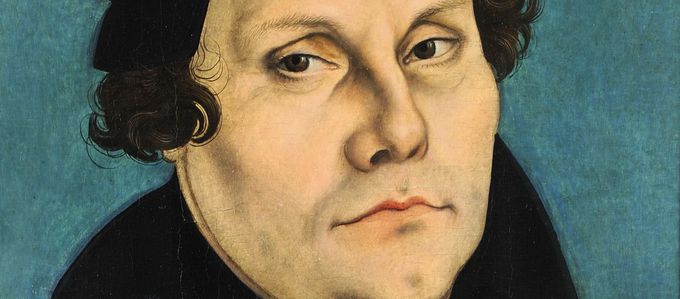Martin Luther: a man of the church
He rendered the church a great service, even though it took a long time before it was acknowledged. Millions of Christians believe his tenets today. Traces of Martin Luther are also found in the divine services of the New Apostolic Church, such as elements of our liturgy or the Luther Bible, the German language Bible translation—a landmark in German literature. Who was this man?

He was born in 1483. The world was a much smaller place then, but not so much different from today. There was poverty, oppression, and little or no access to education. Luther, a Catholic priest, was a teacher through and through, not only for his students, but also for all the other people around him. His objective was to give people a good education, much like good teachers today. And Martin Luther was well educated: he was a doctor of theology. He translated the Bible, which by then already existed in a number of languages, but not in a standardized German. Nor did it exist in print, only as hand-written copies. He started to translate the Bible into the German language, into the vernacular of the day—something that contributed significantly to the development of the language and reached far beyond Luther’s small world.
The indulgences controversy
Luther was a true and upright Christian. The idea of indulgences—the purchase of such a letter entailed the forgiveness of sins—irritated Martin Luther greatly. Throughout his life he stressed the grace of God (sola gratia) and His love and compassion for fallen mankind. Today this position is known as the doctrine of justification. Apostle Paul writes about this in his letter to the Romans: “For in it the righteousness of God is revealed from faith to faith; as it is written, ‘The just shall live by faith’” (Romans 1: 17). The principle sola fide (faith alone) applies: only faith, not works, not money. This Bible passage led Luther to a new understanding of Scripture: God’s eternal righteousness is His gift of grace to mankind, completely undeserved and without mankind being able to contribute anything. For Luther, the Bible was the testimony of Jesus Christ, and the doctrine of justification was central to Scripture: sola scriptura (“by scripture alone”).
Reformation theses
On 31 October 1517 he was said to have posted his Ninety-Five Theses on the door of All Saints’ Church in Wittenberg. Thus they became public and found a large echo. His provocative statements were turned against the sale of indulgences. This unbiblical practice, from his perspective, was the foundation for the Reformation. More and more Christians broke away from the bosom of the Catholic Church. New thoughts, new congregations, and new churches developed. The response was a Counter-Reformation. Christians killed Christians. Things escalated and a terrible time began when people were burned at the stake. And Luther had wanted nothing more than freedom for Christians, as he titled one of his works. On 18 February 1546, the great thinker and theologian died.
And today?
What can we learn from Martin Luther? We can learn from him what it means to be a Christian, what it means to devote oneself to God the Father, and how to bring our lives into line with Scripture. His idea about justification alone through faith is worth pondering about, as is his conviction that Jesus Christ is really present in Holy Communion. New Apostolic Christians profess this too: “This is My body … This is My blood …” His greatest achievement, however, is his translation of the Bible into the German language. Generations of Christians have learnt the Lord’s Prayer from this Bible or read in it the parable of the compassionate father who took his son back although he had done everything wrong.
Keyword Lutheran
The United Evangelical Lutheran Church of Germany belongs to the same confessional family as the Protestant Church. Its doctrine is based on the whole of Scripture and on the confessions of the Evangelical-Lutheran Church: such as the Catechisms of Martin Luther, his Smalcaldian Articles, or the Augsburg Confession (Confessio Augustana). About 74 million Christians belong to the Lutheran confessional family.




